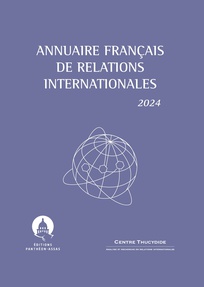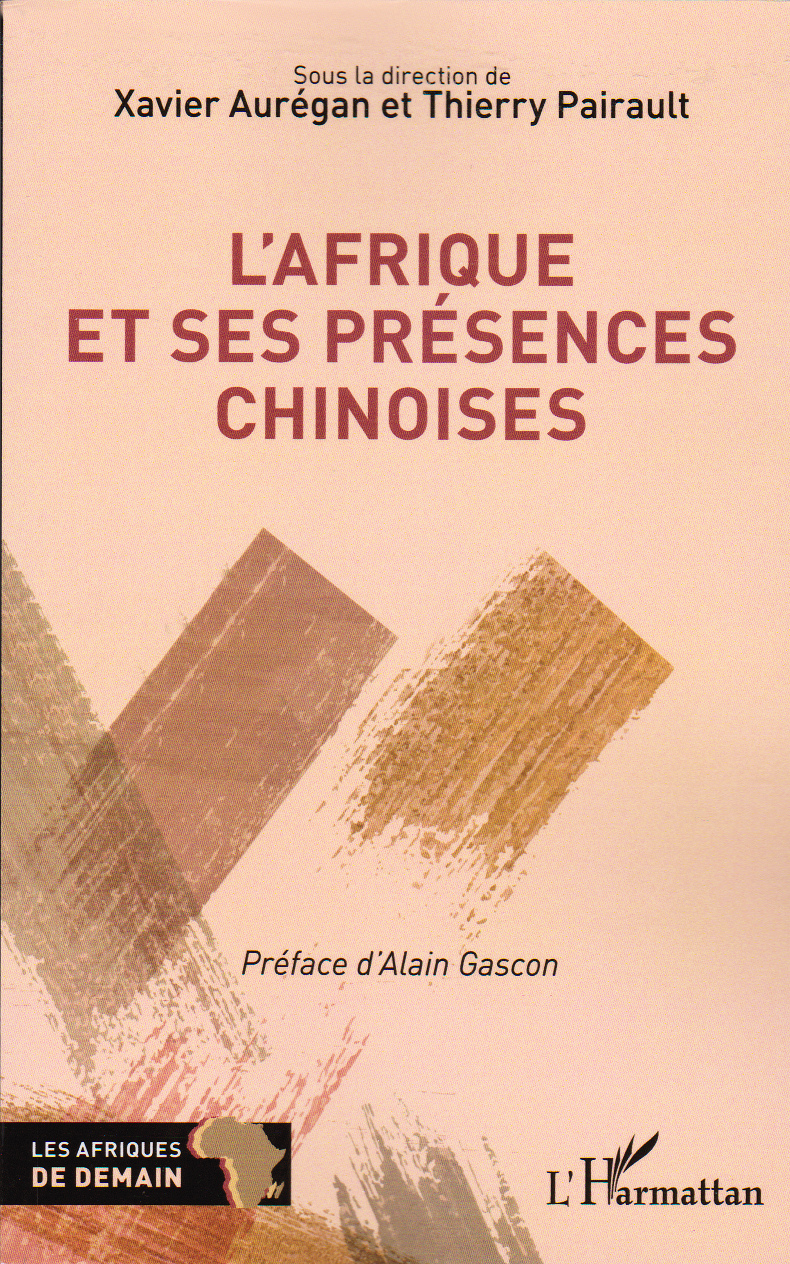Why has the West […] that kind of reluctance to invest in African infrastructure?
Thierry Pairault
Eric Olander a répondu le 21 octobre aux questions de Dan Banik dans un podcast intitulé Eric Olander on China-Africa relations que l’on peut retrouver à ces adresses :
- https://in-pursuit-of-development.simplecast.com/episodes/eric-olander-_oP36p4t
- https://podcasts.apple.com/us/podcast/eric-olander-on-china-africa-relations/id1517346182?i=1000495500694
En écoutant ce podcast, au demeurant passionnant, j’ai sursauté en entendant une des questions posées par l’interviewer : « Why has the West […] that kind of reluctance to invest in African infrastructure? ». Je ne sais si cette question doublement biaisée était posée intentionnellement pour provoquer des explications, ou bien si elle exprimait tout naturellement les clichés que son auteur n’avait pas tenté de questionner.
Commençons par le premier élément, le plus simple. Il y a dans la formulation de cette question une essentialisation de l’Occident comparable à celle qui permet d’accuser la Chine de tous les maux – j’ai eu l’occasion de dénoncer cette pratique dans un document de travail intitulé « Questions générales de méthodologie à propos de la Chine à Djibouti ». Ici, dans cette question piégeuse, ce n’est pas « la Chine » ou « les Chinois » qui sont accusés de faire ceci ou cela, mais l’Occident. De fait, cet Occident essentialisé n’est certainement ni l’Europe, ni aucun pays européen, ni même les États-Unis, mais bien plutôt l’America Great Again de Trump. Ce type démarche conduit à confondre des stratégies entrepreneuriales à caractère commercial avec des stratégies nationales à caractère géopolitique : les grandes multinationales occidentales définissent des stratégies le plus souvent déconnectées des politiques des pays dans lesquels elles sont enregistrées, tant est si bien que les tentatives des gouvernements français et chinois pour élaborer ensemble des partenariats en marchés tiers africains ont été boudées par le patronat français (MEDEF International) et leurs grandes entreprises qui, quoi qu’on en dise, s’activent sans réticence ni répit en Afrique.
Alors, quelle est cette « réticence à investir » ? Commençons par l’évidence. La Chine investit-elle dans les infrastructures africaines ? Non. J’ai déjà eu l’occasion de le montrer à de multiples reprises dont en particulier dans un article en trois parties publié par The China-Africa Research Initiative (CARI) sur son blog les 20-21-22 février 2018 : China in Africa: Much Ado about Investment.
L’Occident investit-il dans les infrastructures africaines ? Pas davantage et ce n’est en rien honteux, car dans un cas comme dans l’autre, ce sont les pays africains eux-mêmes qui investissent dans leurs propres infrastructures, qui en sont les seuls propriétaires et, à ce titre, qui font appel à des prestataires de services et à de bailleurs de fonds qu’ils soient chinois, arabes, français, japonais, turcs, indiens ou autres.
La distinction est séminale. L’investisseur est celui décide de l’investissement, qui en supporte le coût. Ce sont les pays africains qui décident et assument la charge financière. Ni la Chine ni les pays occidentaux (ou plus exactement les entreprises de ces pays) ne décident pour les pays africains. La présence ou l’absence de ces entreprises est voulue par les pays africains eux-mêmes et ne résulte pas d’une quelconque réticence (ou entrisme) de mauvais aloi, mais d’un choix qui n’appartient ni à la Chine ni à aucun des pays occidentaux. La réticence – si réticence il y a – est africaine et non occidentale, voire chinoise. La formulation choisie par Dan Banik est telle que la question enferme la réponse et clos par une condamnation a priori l’analyse avant même qu’elle ait commencé.
En vérité, les entreprises occidentales sont bien présentes. Ni l’aéroport de Maya Maya au Congo, ni la grande mosquée d’Alger, ni le port de Kribi au Cameroun, ni… n’auraient été réalisés sans la participation d’entreprises françaises missionnées par les gouvernements africains à côté d’entreprises chinoises – quand ce n’est pas pour les encadrer. C’est ce que nous montrons dans un Policy Brief que doit bientôt publier le CARI que nous présenterons en novembre dans un webinaire où des responsables d’entreprises françaises exposeront comment ils s’investissent en Afrique.
Dan Banik justifie cette supposée « réticence » occidentale par l’aversion au risque qu’éprouveraient les entreprises. Puis-je rappeler les « zones économique spéciales (ZES) chinoises » le long des nouvelles routes de la soie ont été conçues pour accueillir les entreprises chinoises qui n’oseraient sortir de Chine précisément par peur du risque. Ces « ZES chinoises » participent à l’amortissement du risque, « cushionning the risk » comme dirait Dan Banik en raillant les entreprises occidentales (voir China in Africa: Phoenix nests versus Special Economic Zones). Je rappellerai également que ce sont des entreprises françaises qui offrent dans les ZES marocaines ce « coussin anti-risque » à des entreprises chinoises qui sont leurs sous-traitants.
Enfin, je rappellerai encore d’autres recherches dont les résultats ont été publiés sur le site du CARI en juillet et août 2020 : Investment in Africa: China vs “traditional partners”. Il apparaît clairement que les entreprises occidentales, à commencer par les françaises, sont loin d’avoir renoncé à investir en Afrique et que leur stock d’investissement reste pour l’heure le plus important. Et si nous considérons l’Europe et non plus les pays européens individuellement, il est absolument clair que les relations économiques (investissement et commerce) que l’Union européenne entretient avec l'Afrique sont de très loin beaucoup plus importantes que celles qu’entretient la Chine (voir L'Afrique face à l'Union européenne et la Chine en quatre images).
Étudier les rapports entre la Chine et les 54 pays africains exige que nous remettions perpétuellement en perspective les informations que nous lisons afin d’éviter les interprétations stéréotypées et de repaître des mythes qui survivent malgré leur dénonciation répétée.
Eric Olander answered Dan Banik's questions on 21 October in a podcast entitled Eric Olander on China-Africa relations available at these addresses:
- https://in-pursuit-of-development.simplecast.com/episodes/eric-olander-_oP36p4t
- https://podcasts.apple.com/us/podcast/eric-olander-on-china-africa-relations/id1517346182?i=1000495500694
While listening to this fascinating podcast, I was startled when I heard one of the questions asked by the interviewer: "Why has the West [...] that kind of reluctance to invest in African infrastructure? ». I don't know whether this double-biased question was intentionally asked to provoke explanations, or whether it naturally expressed the clichés that its author had not tried to question.
Let's start with the first element, which is the simplest. In the wording of this question there is an essentialisation of the West comparable to the one allowing China to be blamed for all the evils - I had the opportunity to denounce this practice in a working paper entitled "General Methodological Issues about China in Djibouti" (in French). Here, in this tricky issue, it is not "China" or "the Chinese" that are accused of doing something or other, but the West. Actually, this essentialised West is certainly neither Europe, nor any European country, nor even the United States, but rather Trump's America Great Again. Such an approach leads to confuse entrepreneurial strategies of a commercial nature with national strategies of a geopolitical nature. The large Western multinationals define strategies that are most often disconnected from the policies of the countries where they are incorporated, to the extent that attempts by the French and Chinese governments to set up partnerships together in African markets have been ignored by French executives (MEDEF International) and their large companies which, whatever one may say, are active in Africa without any reluctance or respite.
So what is this "reluctance to invest"? Let's start with the obvious. Is China investing in African infrastructure? No. I have shown this many times before, most notably in a three-part article published by The China-Africa Research Initiative (CARI) on its blog on 20-21-22 February 2018: China in Africa: Much Ado about Investment. Is the West investing in African infrastructure? Not more, and this is nothing to be ashamed of, because in both cases it is the African governments themselves that are investing in infrastructure. African countries are the sole investors/owners and, as such, commission Chinese, Arab, French, Japanese, Turkish, Indian and other service providers and lenders.
The distinction is seminal. The investor is the one who decides on the investment, who bears the cost. It is the African countries that decide and bear the financial burden of their investment in infastructure. Neither China nor Western countries (or more exactly the companies of these countries) decide and pay for African countries. The presence or absence of these companies is deliberate on the part of the African countries themselves; it is not the result of any misguided reluctance (or entryism), but of a choice that belongs neither to China nor to any of the Western countries. The reluctance – if there is any reluctance at all – is African and not Western or even Chinese. The formulation chosen by Dan Banik is such that the question encloses the answer and condemns in advance any analysis before it has even begun.
Actually, Western companies are very present. Neither the Maya Maya airport in Brazzaville, nor the great mosque in Algiers, nor the port of Kribi in Cameroon, nor ... would have been achieved without the participation of French companies commissioned by African governments alongside Chinese companies – if not to supervise them. I show evidence of this in a Policy Brief soon to be published by CARI, which will be discussed in November at a CARI webinar where French company executives will present their work in Africa.
Dan Banik argues that Western alleged "reticence" is due to risk aversion on the part of companies. May I retrieve the “Chinese Special Economic Zones (SEZs)" along the New Silk Roads were designed to accommodate Chinese companies that would not dare to go global precisely for fear of risk. These "Chinese SEZs" help to cushion the risk, as Dan Banik puts it, in taunting Western companies (see China in Africa: Phoenix nests versus Special Economic Zones). I would also recall that French companies offer this "anti-risk cushion" in the Moroccan SEZs to Chinese companies which are their subcontractors.
Finally, I would like to mention other research published on the CARI website in July and August 2020: Investment in Africa: China vs. traditional partners. It is clear that Western companies, starting with the French, are far from having given up investing in Africa and that their investment stock is still the largest at the moment. And if we look at Europe and no longer at individual European countries, it is absolutely obvious that the European Union's economic relations (investment and trade) with Africa are far more important than those with China – see Africa versus the European Union and China in four images (in French).
Studying the relationship between China and the 54 African countries requires we constantly put into perspective the information we read in order to avoid stereotypical interpretations and to rekindle myths that survive despite their repeated denunciation.












